The Lab4 and Memory Improvement Study
Long-term multi-species Lactobacillus and Bifidobacterium dietary supplement enhances memory and changes regional brain metabolites in middle-aged rats
SUMMARY
The main aim of the memory improvement study was to examine the impact of long-term dietary supplementation with a multi-species live Lactobacillus and Bifidobacteria mixture (Lab4) on tests of memory and behavioural flexibility in male rats.
Lab4 probiotics showed a significant improvement in long-term recognition memory in an in vivo model.
An improvement in short-term memory was observed in relation to object location.
The beneficial effects on memory were further confirmed with changes in brain metabolite profiles with Lab4 probiotic supplementation.
Aim
Method
• The female mothers received their standard food top-dressed with Lab4 probiotics daily at dose of 100 million cfu/rat during both the gestation and postnatal period to weaning.
• 16 male pups received the same dose of Lab4 probiotics in their food from weaning until the end of the experiments.
• 16 male pups in the control group received their standard food.
• The testing commenced when the rats were 15-17 months old (equivalent to human age of 38-43 years)
• All tests were performed in accordance with the UK Animals Act and associated guidelines and EU directive 2010/63/EU. The ethical review committee at Cardiff University approved the work.
Results
Novel Object Recognition Memory
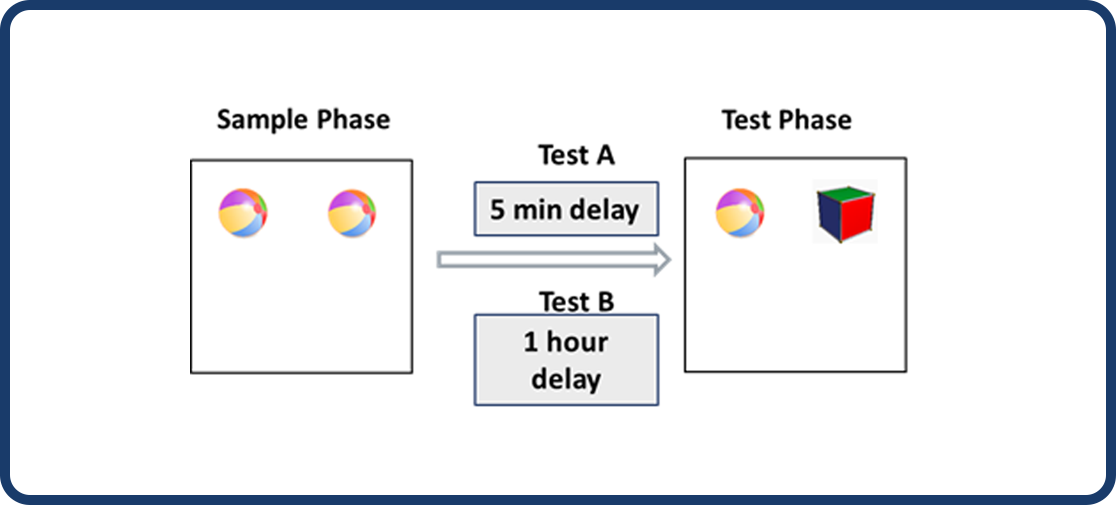
• Two identical objects were placed at equal distances from surrounding walls of the arena
• Rats were left to familiarise themselves with the objects for 4 minutes (Sample Phase)
• Rats were removed from the arena for 5 minutes (Test A)
• One object was replaced with a novel object and rats were placed back in to the arena for 4 minutes (Test Phase).
• Time spent ‘showing interest’ in the objects (familiar vs. novel) was measured
• Rats were removed from the arena for 1 hour (Test B) and then placed back in to the arena to record the contact time with the objects
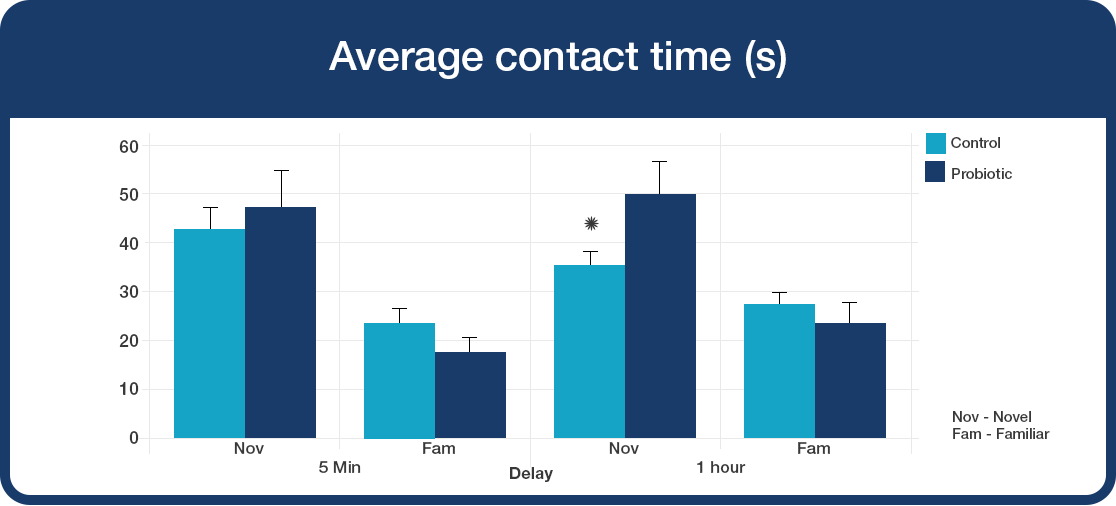
The Lab4 probiotic group showed a significant improvement in long-term object novelty detection (greater preference for exploring the novel versus familiar objects, *P<0.05).
Object-in-place Memory
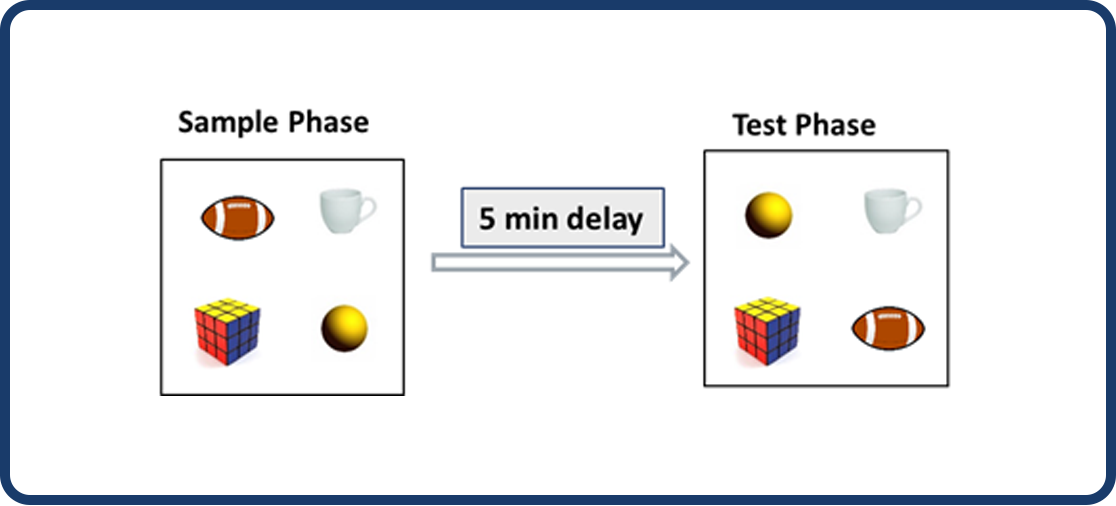
• Four different objects were placed at equal distances from surrounding walls of the arena
• Rats were left to familiarise themselves with the objects for 4 minutes (Sample Phase)
• Rats were removed from the arena for 5 minutes
• Two of the objects that were diagonally opposite each other were switched and rats were placed back in to the arena for 4 minutes (Test Phase).
• Time spent ‘showing interest’ in the objects (same vs. different location) was measured
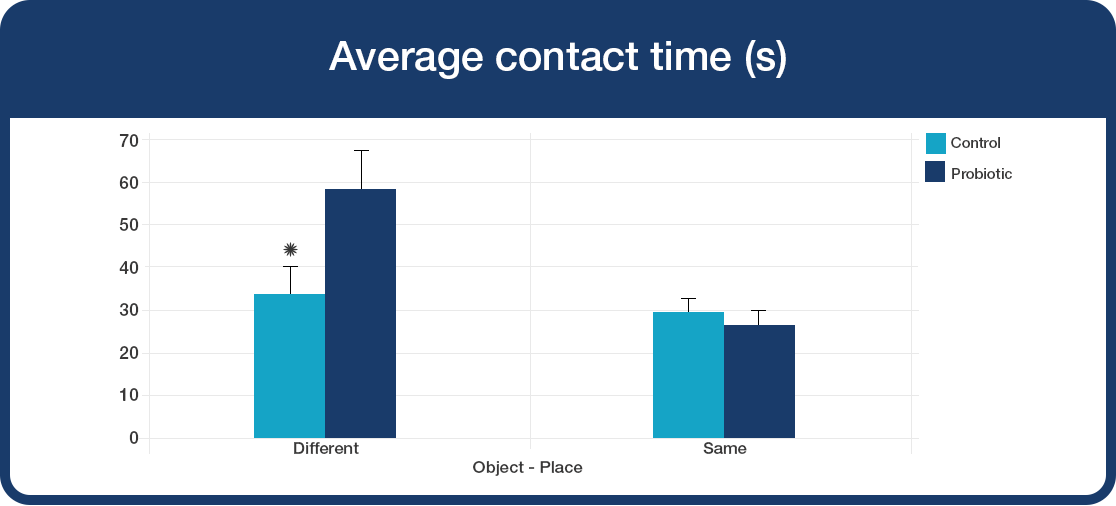
The Lab4 probiotic group showed a significant improvement in short term memory for object-in-place associations (greater preference for the objects in the different spatial locations, *P<0.05).
Brain metabolites
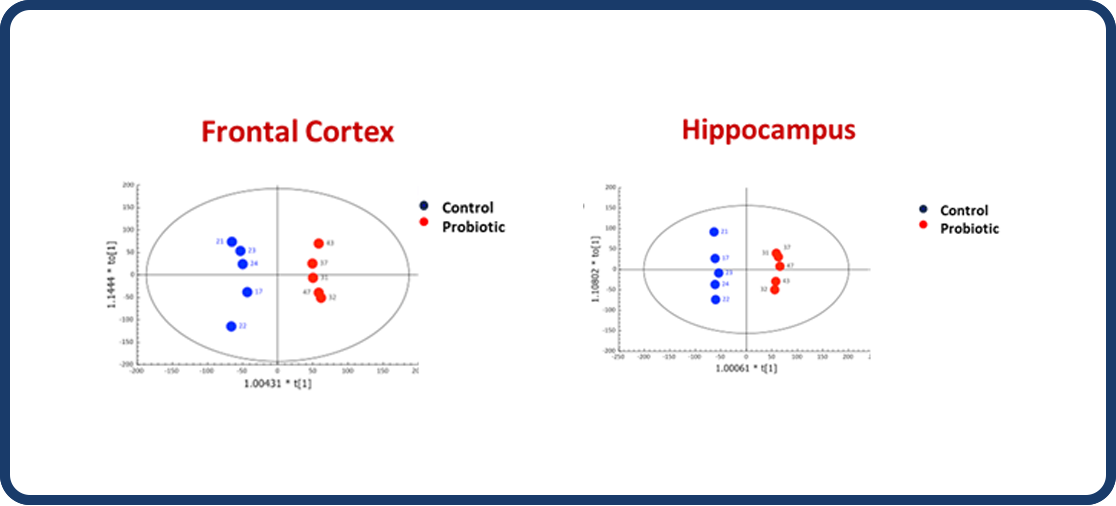

Conclusion
Long-term supplementation with Lab4 probiotics appears to have beneficial effects on memory.

